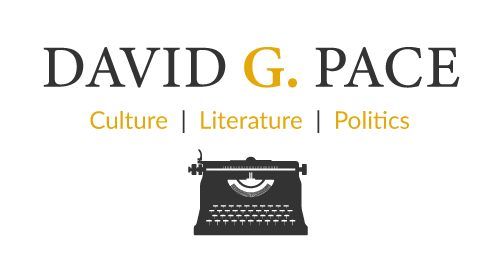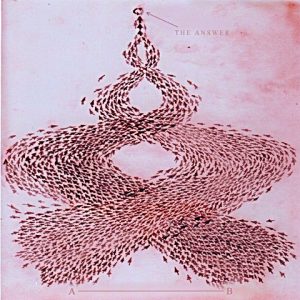Check Your Cherished Opinions
Stand Up and Be Counted
Compromise for the Benefit of the Collective
On the eve of the 2016 election, I am at rest. No more campaigning. No more snappy rejoinders on Facebook. No more snark. And while I believe there is a time to play the game of electoral politics–as bloody as it can get–it’s time now to put down the sword.
I’m not proud of all of my public communications–and by that I mean my expressions in newspapers, conversations and social media. I am guilty of baiting at times. I am too-easily triggered: flooded with emotions that touch on my cherished opinions.
What do I mean by “cherished opinions”? They are opinions that are no longer scrutinized, examined, or re-evaluated. As with most if not all people, I have my fair share of cherished opinions. A brief sampling right now:
- All Republicans are misinformed at best and dangerous at worst;
- Religious fundamentalists should not be given any kind of public platform (or tax breaks);
- Aspirin every day is going to keep me from having a heart attack.
Actually, that last item is a good example of how cherished opinions are formed. I don’t remember what article it was on the internet. I think it was multiple medical opinions over the course of several years. But at one point, I read one particular article that suggested that an aspirin a day was going to help me avoid heart trouble later.
To me, taking one pill a day as quick as you please was a no-brainer, especially consdering that it was going to help me by such and such a percentage. So forming that opinion was great, because it required a dang easy behavior. But what has happened since that notable time, other than the fact that I’ve bought and consumed a LOT of aspirin, is that I don’t think about the truth behind the claim anymore. I just do it.
Well, guess what? Nothing . . . nothing is so simple as a cherished opinion, including aspirin as a pancea for heart trouble. In fact, taking aspirin every day has its downside. And, more pernicious than that, I’m the kind of guy (lazy) that might very quickly use my quotidian dosage of aspirin as an excuse not to do anything else for my heart, even though statistically (and congenitally) I’m prone to suffer if not die from it.
Me: I don’t have to worry about my drinking and lack of exercise.
The Universe: Why is that?
Me: I take aspirin!
My call to action here at the end of the 2016 electoral cycle and all of the knuckleheadery that’s been going on is this:
Check your Cherished Opinions
Stand Up and Be Counted
Compromise for the Benefit of the Collective
About three weeks out from Nov. 8, 2016, when the fatigue from campaign anxiety was setting in (what David Plouffe calls “bed-wetting“), my wife Cheryl and I posted a blog on Medium to try to get people to talk, in a non-partisan way, about what it means to vote one’s conscience: “how do we distinguish the inspired voice of conscience from the prejudicial voice of our cherished but perhaps unsupported opinions?”
We got very few responses. One in fact, as of Nov. 7, 2016 . . . a very thoughtful one, I might add. But most people seemed to be finished with all of the craziness of email scandals and Trump rallies. They didn’t want to think or comment on any of it. Not in an abstract, philosophical way. We were all too busy swinging our swords.
So, to suggest something about opinion-making and opinion-checking, morality is a philosophy of equality. Therefore, to vote one’s conscience is to cast a vote for the good of one’s self and everyone else. No one should tell you not to vote your conscience. It’s not only the right thing to do but, for moral individuals, it’s the only thing you can do when you enter the voting booth. That includes strategically voting (I’m going to vote for this guy, even though I despise him, so that that candidate over there has less of a chance of winning.)
That said, here’s another claim: Conscience evolves with greater understanding. Cheryl and I used the example of slavery in America and how, arguably, the consicence of Americans did indeed evolve, which led to emancipation. And we conclude with this: “The voice of cherished opinion is a smug one. But the voice of conscience is arguably a very uncomfortable one. Conscience at work has an overwhelming tendency, it seems, to undermine certainty and to require courage.”
That’s what I mean by keeping in check one’s cherished opinions.
Stand Up and Be Counted
I used to teach public speaking at Westminer College in Salt Lake City, and I taught it as a civics course for a couple of reasons: first, speeches (i.e., communications or presentations) that we are familiar with as a collective tend to be based on issues of political and social concern; and, second, it doesn’t seem that we even teach civics anymore in high school or college.
My agenda with my students was this: in a democracy, not only do you have the right to express your opinion, you have the obligation to express it. For the good of The Republic. We need everyone’s voice. But we also need conscientious warrants for the arguments we make, along with a sense of the ebb and flow, the dialectic, to reference Aristotle, the author of The Rhetoric, (“the art of persuasion”) and arguably the father of communication studies.
As an aside, with the raucous surge of Bernie Sanders and Donald Trump voters this year, it has occurred to me that the election cycle has been especially turbulent because there are so many newcomers to the game. The learning curve of making democracy is hard-wired, I believe, but there is a learning curve. Not that everyone who supports either of these sample candidates are neophytes, or are “uninitiated,” but many, I posit, were / are. We need to welcome them, but we also need mentor what it means to form rather than adopt opinions, especially when there’s so much at stake, as in an election.
I don’t believe it is in our best interests to eliminate any of the voices of the American people, even when they are pointed and harsh. As a country, we have our laws. For example, “fighting words” are not allowed. And our free speech tradition will always err on the side of a big tent approach to public discourse. Rightly so.
To conclude this section: we need everyone’s voice to make democracy–as messy as it is–work.
So stand up . . . and be counted. Vote.
Compromise for the Benefit of the Collective
If we believe that we can be blinded by our own cherished opinions, and if we believe that we have (along with everyone else) not only the right but the obligation to speak our mind, then we are more likely to see compromise, not as a four-letter word, but as the way things actually work in our world . . . arguably, the only way that things work sustainably in our world.
Our expressions of opinion, the reasons and warrants we give for those opinions, the data or “facts” that we present to support why we have come to a conclusion–the candidate we endorse and campaign for–they become a moral act. And a moral act is a sustainable act, a communal act, and social act in the best sense of the word “social.”
In this scenario of forming opinions consicously, our conscience, as evolving as it is, remains intact. We may disagree with each other, but we understand again, using the dialectical model of Aristotle, that real world behaviors–behaviors that take place in commerce, in family arrangements, in law and in politics–they are a product and a glorification if you will, of communicative acts.
This back-and-forth dynamic is how a good conversation happens, if you think about it. You and your friend get together over coffee or drinks, or a small family group gathers over dinner, and you discuss, you explore, you laugh and you ponder. You express and you hold back. You counter. You add more information, hopefully truthful information, inflected by your good will for those with whom you are communicating.
When a decision is required, you make that decision, but you do it together. You can’t do it alone. You can’t do it by edict. (I mean you can, but eventually those you’ve imposed your edict on are going to, rightly, rebel. Then we really do have a revolution, and another problem since people get hurt pretty badly in a revolution.)
So this is what I’ve been thinking of late, in between taking my aspirin every day; finding out that red wine is good for me . . . but wait . . . now it’s not; that free trade is essential to “lifting all boats” and being a bridge to the new century . . . but, wait a minute, not when it categorically risks decimating our work force; that war is always regrettable, but sometimes will happen, particularly in defense of the homeland (but not for the purposes of exploitative globalization, or getting more oil).
I’ve been thinking about this and I realize that after tomorrow–whoever wins the presidency, the Senate, the House . . . the school board, we have our work cut out for us. And you know what? It will actually be work that is gratifying. So that the next time the election season cycles back in, we’ll be more prepared for it. We’ll be more humane. We’ll be more helpful. And we will better thrive.
Check your Cherished Opinions
Stand Up and Be Counted
Compromise for the Benefit of the Collective


